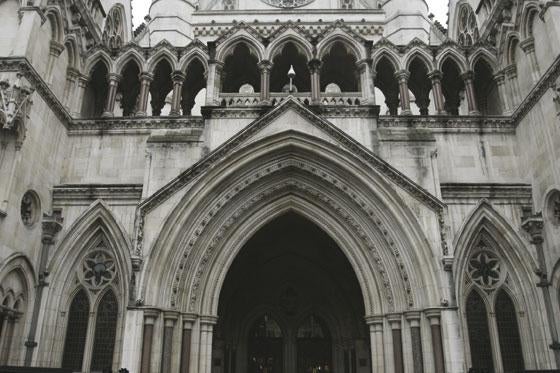
Two more anonymous privacy injunctions have been issued by the High Court, it emerged yesterday.
The existence of both orders was disclosed with the publication of two brief judgments in which Mr Justice Tugendhat explained that he granted them on Thursday last week (24 Nov).
One was in a case referred to as QWE v SDF, GHJ and RTY, and the other was in a case called STU v UVW and XYZ.
In the QWE case judgment, Justice Tugendhat said the order he granted banned the disclosure of specified information “and in particular any information concerning the fact or details of the sexual relationships” between QWE and SDF and GHJ.
The terms of the order “substantially reflected those of the Model Order recommended in the Practice Guidance: Interim Non-Disclosure Orders issued by the Master of the Rolls on 1 August 2011”, and there was a return date in December.
The judge said: “The parties to the proceedings are all individuals, and the claimant has no present intention to notify any third party of the terms of the order.”
He was satisfied that there were compelling reasons why the defendants should not be notified because QWE was claiming to be the subject of a blackmail attempt by SDF.
“In the case of ASG v GSA ([2009] EWCA Civ 1574), the Court of Appeal accepted that when a privacy injunction was being applied for in a blackmail case it was appropriate to make an application without notice, and the facts of the present case are sufficiently similar so that I am so satisfied,” Mr Justice Tugendhat said.
He was also satisfied that the it was necessary for the hearing to be held in private and for there to be the other derogations from open justice, which were set out in the order.
QWE had raised a case that he or she had a reasonable expectation of privacy in respect of the information which, on the evidence currently available, was likely to succeed at trial.
In the STU case, Justice Tugendhat said he had granted an injunction in terms “substantially agreed between the parties” which banned publication of information specified in the schedule to the order.
He was satisfied that, in the interests of justice, it was necessary to give the parties anonymity and make the other orders derogating from open justice as otherwise “the purpose sought to be attained by these proceedings would be likely to be defeated”.
He went on: “There has been some public reporting in the past. As a result, if the parties were not anonymised, or if further information were disclosed in open court or otherwise, there would be a real likelihood that information which is claimed to be private and confidential would be disclosed.”
The parties were all individuals, said the judge, adding that the case would now proceed in accordance with the civil procedure rules.
Neither judgment gives any explanation as to why the hearings on November 24 at which the applications for the orders were made did not appear on the court lists.
It is also understood that an MP has tabled a written question in the House of Commons about the latest two cases.
The cases are believed to be the first anonymised applications to become public knowledge since the row over privacy and super-injunctions earlier this year.
That row – which included concerns about gagging injunctions obtained against individuals but then served on the media – led the Master of the Rolls, Lord Neuberger, who is head of civil justice, to issue Practice Guidance on Interim Non-Disclosure Orders on August 1.
The guidance stressed that open justice “is a fundamental principle” and that derogations from the general rule could be justified only in “exceptional circumstances, when they are necessary as measures to secure the proper administration of justice”.
Email pged@pressgazette.co.uk to point out mistakes, provide story tips or send in a letter for publication on our "Letters Page" blog
